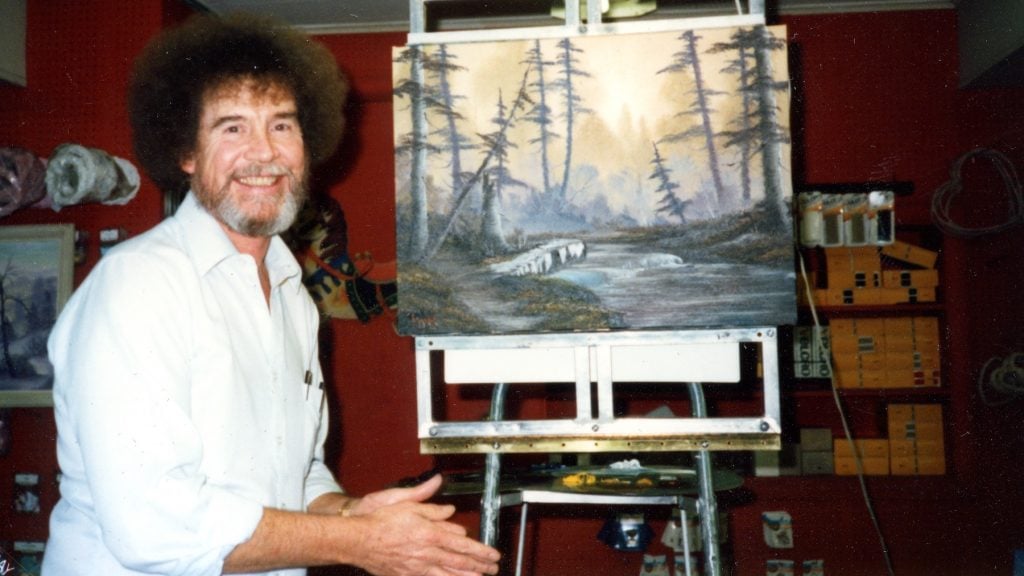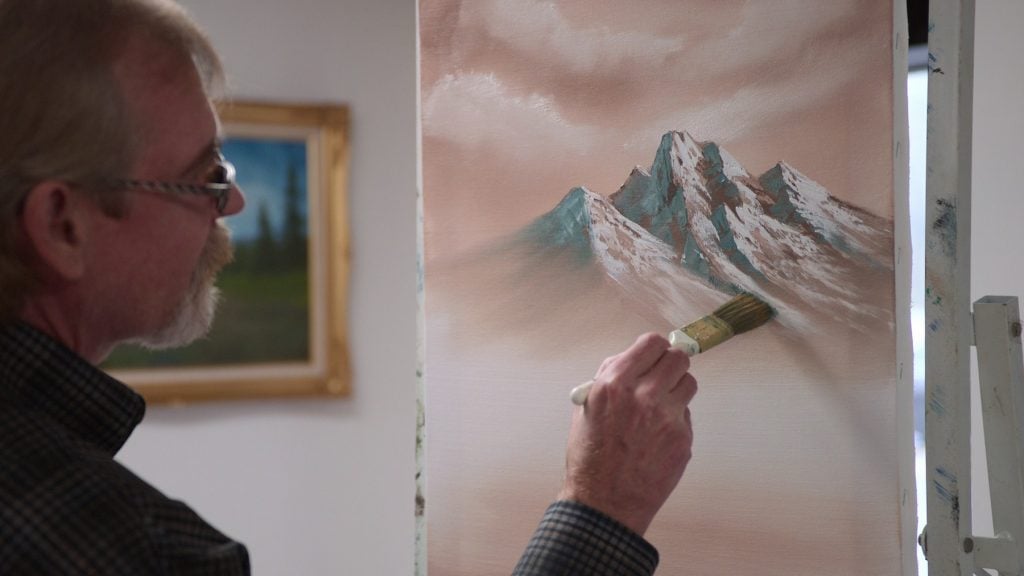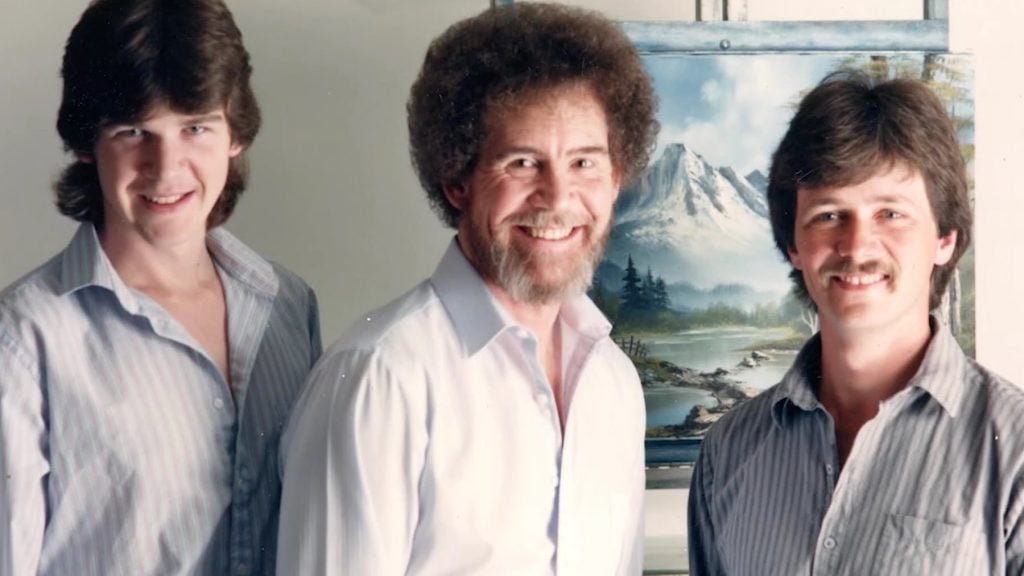Art World
Bob Ross’s Former Business Partners Hit Back at a ‘Slanted’ Netflix Documentary That Alleges They Seized Control of His Legacy
The Kowalski family says that the filmmakers are biased towards Steve Ross, Bob's son.

The Kowalski family says that the filmmakers are biased towards Steve Ross, Bob's son.

Eileen Kinsella

As most of the world knows, Bob Ross shot to global fame in the ’80s and ’90s with his calming instructional painting TV show, The Joy of Painting. A just-released Netflix documentary, Bob Ross: Happy Accidents, Betrayal & Greed, chronicles the surprising—and distressing—back story that runs counter to the beloved PBS painter’s aura of untroubled positivity.
Annette and Walt Kowalski were Ross’s long-time business partners, playing a key role in his rise to stardom. Along with chronicling a possible affair between Annette and Bob and the Bob Ross empire’s rivalries with other DIY painters, Bob Ross: Happy Accidents, Betrayal & Greed highlights accusations from Steve Ross, Bob’s son, that the Kowalskis seized control of Bob Ross Inc. at the end of Bob’s life, while he suffered from cancer. (The film is the subject of the most recent episode of the Artnet News podcast, The Art Angle.)
Steve alleges that he has been shut out of the business despite his father’s desire that his son carry on his legacy. Meanwhile, in the decades since Bob’s death, the Kowalskis have created a massive Bob Ross licensing empire powered by the public’s continued love of the Joy of Painting.
Now, following the film’s debut on Netflix, the Kowalski family is firing back at the filmmakers, alleging an “inaccurate and heavily slanted portrayal of our company” in the film.

Steve Ross show painting in Bob Ross: Happy Accidents, Betrayal & Greed. Courtesy of Netflix © 2021.
The Kowalskis write in their statement: “While the producers of the Netflix film did contact Bob Ross Inc. twice, in late August and October 2020, each request arrived replete with a confounding lack of transparency. At no time did they pose specific questions to Bob Ross Inc. or ask for any form of rebuttal to specific assertions they had decided to include in the film. Nor was it stated that they had a distribution deal with Netflix.”
The statement goes on to say that “the final narrative lacks considerable nuance and accuracy and carries a clear bias in favor of those who were interviewed.”
In their most concrete attempt to correct the record, the Kowalskis say that the documentary is misleading about the nature of Bob Ross Inc.’s history with Steve:
in the film, Steve Ross says, “I have been wanting to get this story out for years” – a statement that shapes the overall direction of the film, creating the idea that he was previously prevented from doing so. Bob Ross Inc. never pursued or threatened legal action against Steve Ross, and, in fact, no one at Bob Ross Inc. heard from Steve Ross for almost twenty years, until 2017 when Steve filed suit against the company without any prior communication.
They also state that after seeing media reports about the film’s summer release, Bob Ross Inc. attempted to reach out to the filmmakers in May 2021 to offer comment. “They did not return calls or emails and finally responded through their attorney. We provided a comprehensive statement, and the filmmakers chose not to use it.” (Before the film’s end credits, a text card says that the Kowalskis replied after the film was done, and that they “deny that their relationship with Bob Ross was fractured at any point.”)
Asked by email about the Kowalskis’ statement, the documentary’s director Joshua Rofé provided the following:
Our mission has always been to tell a truthful story about the life and legacy of Bob Ross. And we stand by the film we made. We would have loved for the Kowalskis to participate, as we had hoped to hear from all people closest to Bob, but they declined on more than one occasion. Once the film was completed, the Kowalskis agreed to answer questions in writing, and we included those specific answers at the end of the film.
In his interview with the Art Angle, Rofé said he had not set out to make a documentary about the behind-the-scenes drama. He claimed he began by trying simply to tell a story that filled in the details of a beloved public figure’s life, reaching out to Bob Ross’s former colleagues.
“We were coming up against two things: it was clear they all loved Bob…,” Rofé said. “The other thing was that they were all afraid to talk about him publicly for fear of some sort of legal retaliation by an entity they refused to name. It was in those moments that I knew I had to pursue making this film and to try to tell this story.”

Left to Right: Steve Ross, Bob Ross, and Dana Jester in Bob Ross: Happy Accidents, Betrayal & Greed. Courtesy of Netflix © 2021.
Dana Jester, described as “Bob’s friend” and today a business partner with Steve, is seen in the film saying, “A lot of people are backing out that agreed to do an interview for this because they are are scared of the Kowalskis.” The documentary states that “more than a dozen people who knew and worked with Bob declined to participate… due to the concerns of legal retaliation.”
On social media, viewers of Bob Ross: Happy Accidents, Betrayal & Greed expressed being heartbroken or joked about plotting revenge against the Kowalski family. “Okay so please boycott Bob Ross INC and don’t buy any Bob Ross merch because his son Steve doesn’t see any of that money what so ever and his name is being exploited against Bob’s wishes before his death,” wrote one.